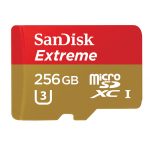Why SoftBank is paying $32 billion for ARM Holdings

SoftBank is buying ARM Holdings for $32 billion. Why would a company not presently in the semiconductor business spend 32 times sales to enter a new industry? By traditional measures it makes little sense. But for SoftBank it makes perfect sense, because here’s a company that has spent more than 30 years making high-risk bets on entering new businesses by apparently over-paying for assets. It’s the way they’ve always done it and it has nearly always worked. In this case SoftBank is paying a 43 percent premium over the recent ARM share price because that’s how much money it took to overcome the resistance of ARM management. And it’s just a guess on my part, but I’d say those very ARM managers are, for the most part, doomed. SoftBank isn’t buying ARM because Masayoshi Son is so impressed with ARM’s success: SoftBank is buying ARM because of what it can become.
The only way SoftBank can justify paying such a high price for ARM is if Mr. Son is about to change ARM’s business model.
Qualcomm facing record fine in South Korea for breaching fair trade rules

Qualcomm is facing a $900 million fine in South Korea after its Fair Trade Commission found that the California-based chipset company had charged smartphone manufacturers unfairly for its mobile processors.
The company was found guilty of breaching fair trade rules at the conclusion of the agency’s 17-month investigation. Qualcomm charged Samsung, LG and other South Korean smartphone manufacturers higher licensing fees than it should have for its mobile processors. The company used the wholesale price of a smartphone to calculate the fees as opposed to the actual cost of the chips.
In the wake of UK Brexit vote, ARM Holdings is to be bought by Softbank for $32 billion

The technology industry in the UK was rocked by the historic Brexit vote in the referendum about membership of the EU just a few weeks ago. Concerns were voiced that tech companies would scramble to leave the UK, and with Japan's Softbank Group due to buy UK chip-maker ARM Holdings for $32 billion (£24 billion), this could just be the start of things.
ARM chips are found in mobile devices produced by Apple and Samsung, and more recently it has branched out into the Internet of Things. But while some will be unhappy with the change of ownership, Softbank says that it will not only remain headquartered in Cambridge, UK, but will look to at least double its UK workforce.
Google should Brexit

Yesterday, Europe's Competition Commission expanded its legal assault against Alphabet and major subsidiary Google. Four monopolies are under fire: AdSense, Android, search, and shopping services. Trustbusters allege that Google uses anticompetitive tactics to protect its market dominance, which share ranges from 80 percent to 90 percent in each category. Behind the charges is a hoity-toity attitude typical of overly-protectionist EU regulators. What if the information giant gave them what they want?
Imagine this: Google shuts down operations across the entire Euro zone—in a Brexit-like departure, but suddenly with no preparations. Switch it off. Search and other services could remain available in Britain and to all other non-EU countries. The company surely has the means, starting with IP blocking and expanding to other measures. The risk: Confirming just how dominant is Google, because of the incredible negative consequences. But the chaos also would lead to an outcry to restore services, while illuminating how important Big G is to citizens and how greatly businesses benefit, or profit, from the monopolies.
Google Hangouts 11 update drops merged conversations, gains video messaging

Google has its fingers in lots of messaging pies, and having added SMS support to Hangouts on Android, it wasn’t long before the merging of text and chat conversations was introduced. With the release of Hangouts 11, this changes.
With the new release, merged conversations are now gone -- SMS and chats are kept separate, but you won't lose anything -- perhaps in a bid to push people to its Messenger app to take care of texts. The same release also sees the addition of a long-awaited feature: the ability to send videos in a message.
Amazon Prime Day 2016: The best deals available right now

As you're no doubt already aware, Amazon Prime Day is upon us. You have to be a Prime Member to take part in this day of deals, but you can sign up for a free 30-day trial if you're not already a Prime subscriber.
The team over at TechBargains has prepared some of the best, longer lasting deals but be warned, this is a pretty crazy day and a lot of offers are going fast. For full coverage be sure to check out TechBargains for the most up to date coverage on the Lightning Deals which launch every 5 minutes and will have a limited supply and time limit, so act fast.
Qualcomm unveils the processor that will power the next flagship smartphones

Qualcomm is well represented in the current generation of flagship smartphones. Its mighty Snapdragon 820 processor powers the most hotly anticipated high-end handsets that we have seen in 2016 so far, including HTC 10, LG G5, Samsung Galaxy S7 and Xiaomi Mi 5. But, for the next flagships to come in the second half of the year, the company is providing an even more powerful chip.
Qualcomm's latest high-end processor is called Snapdragon 821 and, as its name suggests, it is an evolution of the Snapdragon 820. The main improvements are "faster speed, improved power savings, and greater application performance". Let's take a closer look at it.
SanDisk Extreme 256GB microSDXC UHS-I Card is 'world’s fastest'

Micro SD cards are small enough -- any smaller and it would be downright ridiculous. Think about it, folks, they are already too easy to lose. A better way to push the envelope with these miniature storage cards is speed and capacity.
Today, Western Digital announces the SanDisk Extreme 256GB microSDXC UHS-I, which it claims to be the world's fastest such card. Whether you are recording 4K video on a GoPro, or accessing files on your smartphone, the storage media can never be too fast, am I right? In addition to the aforementioned card, the company also announces the less-expensive and slightly slower 256GB SanDisk Ultra microSDXC UHS-I card, Premium Edition.
Security researchers find major vulnerabilities in Uber

A group of hackers from a security company in Portugal managed to hack into Uber and get their hands on a bunch of data that should remain hidden.
The team of three experts, Vitor Oliveira, Fábio Pires and Filipe Reis from Integrity, found a total of six flaws: they managed to use promotion codes, found private emails using UUID, found users’ phone numbers, created driver accounts, validated them, found where you went, who your driver was, and who you are and, ultimately, date of the trip, driver name and picture, the ID and the cost of the trip. The route map was also disclosed.
Report of Google making its own smartphone is rubbish

Google is rumored to be working on a smartphone of its own that would help it "tighten its grip on mobile software and see it compete directly with the iPhone", according to a report from The Telegraph. The information comes from the usual "sources familiar with the discussions", who are all too often making the news because some fellow writers have no filters whatsoever.
To folks completely unfamiliar with the mobile space this report would make sense. It has all the right ingredients for that, but fortunately using just a small dose of common sense one can immediately call this report for what it is -- rubbish. Here's why.
Best portable power solutions

Is your smartphone battery sucking the fading fumes of its final milliamps? If it is, there is absolutely, positively no reason whatsoever for you to be frantically foraging for an AC outlet. None. Zero. Not when there are literally hundreds of portable power options in a wide variety of sizes, form factors and capacities to be had at surprisingly low prices.
For instance, you can buy a battery case for your phone. Or, you can buy a compact charger to stash in your pocket or purse. You can buy a slim battery just slightly larger and thicker than a credit card to slip in your pants. You can buy a thicker brick to tote in a bag able to recharge your dying phone multiple times. You can buy portable batteries that'll charge multiple gadgets simultaneously, portable batteries with extra memory to store photos or other files, even portable batteries with built-in flashlights.
Majority of consumers will embrace digital assistants like Google Now and Siri

Like it or not, we’re all going to have Batman’s Alfred Pennyworth soon. In a digital format, that is, but nonetheless an assistant.
This was concluded by research specialists Gartner, which said that by 2019, at least a quarter of households in developed countries will use the services of a digital assistant, either on a smartphone, or in a standalone device.
What is Optic AMOLED?

There's quite a lot to get excited about with regard to the newly announced OnePlus 3. After lots of teasing, the 'flagship killer' handset was revealed earlier this week as a 5.5-inch, dual SIM beast packing a Snapdragon 820 and 6GB of RAM.
But among all the specs that seem familiar, or at least make sense, there is the display. This is a 1080p panel powered by an Adreno 530 chip, with protection coming courtesy of Corning Gorilla Glass 4. It's described as being an Optic AMOLED, but what does that actually mean?
First batch of Chromebooks reach End Of Life and get no more support or updates

The original Chromebooks launched back in 2011 are reaching the end of their support cycle. With Google offering a fairly generous five years (*) of support and updates, users have had a good run, but the Samsung Series 5 Chromebook is the first device to drop off the support list.
Having been launched in August 2011, Acer AC700 Chromebook will be in a similar position in a couple of months. But it's not entirely clear what will happen. Google says that after five years, automatic updates are "no longer guaranteed", but the company has continued to provide updates for its own devices that originate from 2010.
Facebook lets users upload interactive 360-degree photos

Interactivity is the name of the game these days, as illustrated by the explosion of interest in VR. Facebook may not have gone quite as far as bringing virtual reality to your newsfeed, but it does now support 360-degree photos -- or 360 Photos as it has been dubbed.
Starting tomorrow, you'll be able to upload either 360-degree photos, or panoramic photos. On the web, these become interactive images that you can scroll around using a mouse, but on a smartphone you have a couple of options. You can either tap and drag your way around an image, or hold up your phone and move it around, taking advantage of the accelerometer. If you want to get really fancy, you could don a Samsung Gear VR headset.
Recent Headlines
Most Commented Stories
© 1998-2024 BetaNews, Inc. All Rights Reserved. Privacy Policy - Cookie Policy.